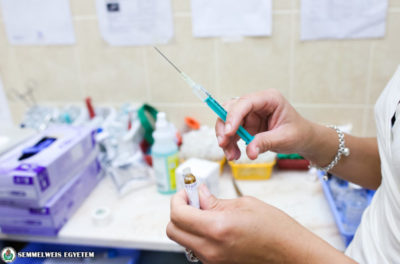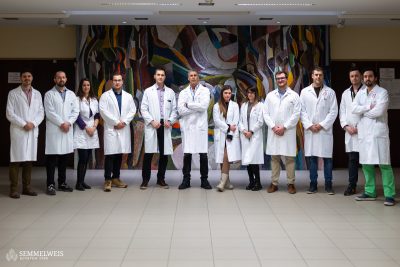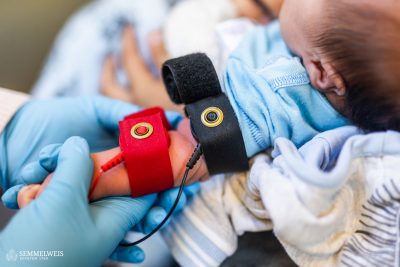There are approximately 20-25 children in Hungary suffering from hypophosphatemia, a rare genetic disorder linked to the X chromosome which causes the kidney to lose phosphate due to the increased level of a hormone.
 “The most common symptoms affect the structure and strength of bones and teeth, causing pain, growth abnormalities, and rachitis characterized by bone deformity. A new biological therapy has recently been developed, which uses an antibody targeting the phosphate excreting hormone.”, said Dr. György Reusz and dr. András Szabó, the two professors from the 1st and 2nd Departments of Pediatrics responsible for the treatment.
“The most common symptoms affect the structure and strength of bones and teeth, causing pain, growth abnormalities, and rachitis characterized by bone deformity. A new biological therapy has recently been developed, which uses an antibody targeting the phosphate excreting hormone.”, said Dr. György Reusz and dr. András Szabó, the two professors from the 1st and 2nd Departments of Pediatrics responsible for the treatment.
4 pediatric patients were the first in Hungary to receive this brand new and effective drug treatment as part of a biological therapy at Semmelweis University. One of the children showed visible signs of this rare disease: his lower limbs were moderately bent, which would have caused a severe deformity affecting the ability of walking by adolescence without treatment. However, the disease can be successfully treated with biological therapy.
The drug containing the active substance burosumab has been successfully started in children without complications who will need to continue the therapy until they reach adolescence, when skeletal growth stops.
According to Dr. Attila Szabó, Director of the 1st Department of Pediatrics, the treatment of more children is going to be started at Semmelweis University in the following days.
Orsolya Dávid
Photo (illustration): Attila Kovács – Semmelweis University
Translation: Norbert Lukács


